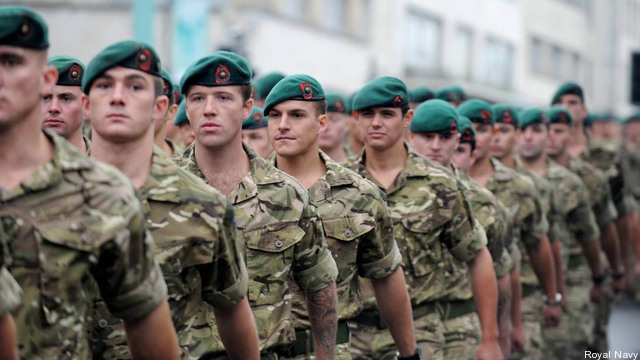
When British Prime Minister David Cameron meets with President Obama this week, their discussions about Syria, Afghanistan, and Iran will dominate headlines. Also important, though less high profile, is the two allies’ preparations for NATO‘s May Chicago Summit, which will seek to bolster the alliance’s strained mission in Afghanistan and develop plans to maintain essential military capabilities in an era of austerity.
Despite over 400 British casualties and diminishing public support for the Afghan mission, Cameron has remained steadfast. The Prime Minister will want assurance that the President remains equally committed to NATO’s pledge for a phased transition to an Afghan lead in security after 2014, with an advisory presence thereafter.
The two leaders will also discuss plans to limit the gap between projected European military capabilities and the missions allied leaders have said their forces must collectively be prepared to undertake. This will require difficult reforms, enhanced multinational cooperation, more efficient spending, and long-term investments. Otherwise, NATO will need to lower its level of ambition or live with higher risks in future crisis management operations such as Libya and even in maintaining collective defense commitments against diverse global threats.
The austerity measures being implemented by most European governments will result in diminishing defense budgets over the next five years or longer. While still a leading contributor to NATO, the UK defense budget is slated to decline by 8 percent through 2014, and plans for a leveling off after that seem dubious. Reductions by many other allies are even steeper. These cuts will further erode European military capabilities already suffering from two decades of underinvestment and make their forces even more reliant on U.S. support systems. European members of NATO still spend a sizable amount on defense, over $296 billion in 2010- more than China, Japan, Saudi Arabia, Russia, Brazil, and Australia combined. However, they spend those resources badly on duplicative legacy capabilities, and many personnel are ill prepared and equipped for emerging missions.
The Obama administration has recently announced a $487 billion reduction in U.S. defense spending over the coming decade and a “pivot” to East Asia, with an attendant rebalancing in military deployments. These steps will result in a reduction from four to two U.S. Army combat brigades permanently stationed in Europe, but would still leave 37,000 troops in Europe-the largest such deployment in any region-along with sizable air and naval forces. These forces will be sufficient to uphold collective defense commitments to Europe against any likely threat and will be augmented by periodic rotations of U.S.-based units for training with European forces. But Britain and other allies worry that these developments will require them to undertake some future military operations without U.S. forces and want reassurance of Washington’s enduring commitment European security.
It will be a major challenge to maintain NATO capabilities for both crisis management and collective defense in light of these realities. The Obama administration’s strategy is to get Europeans to put a floor under their declining defense budgets and spend the considerable sums they do devote to their militaries more efficiently, while undertaking a new transatlantic commitment to identify and invest in the most critical military capabilities over the long-term.
At their November 2010 Lisbon Summit, allies agreed to more efficient use of available defense resources through enhanced defense planning, multinational development of capabilities, and broad reforms of NATO structures including downsizing its military commands and civilian agencies. Last year, NATO Secretary General Rasmussen began a campaign for “Smart Defense” to get better value and effect from available resources through multinational cooperation, setting the right priorities, and better coordination of national defense plans. There is a clear recognition that European governments will be unable to spend more on defense for some time but they must spend more wisely. Following an intensive study of opportunities for multinational cooperation in 2011, NATO’s Allied Command Transformation (ACT) has recommended an initial package of 20-30 agreed projects as candidates for greater pooling and sharing, each with an assigned lead nation and grouped according to the critical capability shortfalls they address.
Last month, U.S. Secretary of Defense Panetta called for a long term plan to achieve the forces that the alliance should have by the end of the decade-NATO 2020. The Obama administration is encouraging its allies to integrate the reforms agreed to at Lisbon, Smart Defense, improvements in training and exercises, and investments in critical capabilities to ensure the alliance can maintain its level of ambition. The administration is seeking allied endorsement of a few flagship multinational projects, such as the new missile defense program, and a process to identify and protect operational capabilities essential to likely future missions.
NATO’s Chicago Summit will provide allied leaders an opportunity to demonstrate that the transatlantic relationship remains vibrant in the face of economic constraints and that the alliance is implementing a sustainable strategy for transition in Afghanistan and addressing emerging threats. European governments could answer U.S. concerns about diminishing military capabilities by making a sustained commitment to NATO’s Smart Defense and other initiatives needed to realize a credible and effective NATO military posture for 2020. Now is the time for Obama and Cameron to draw up their campaign plan for Chicago.
————————————
Stephen J. Flanagan is Henry A. Kissinger Chair at the Center for Strategic and International Studies in Washington. He served in senior positions in European affairs during the G.H.W. Bush and Clinton administrations and is the author of A Diminishing Transatlantic Partnership?
In a ‘world first,’ DARPA project demonstrates AI dogfighting in real jet
“The potential for machine learning in aviation, whether military or civil, is enormous,” said Air Force Col. James Valpiani. “And these fundamental questions of how do we do it, how do we do it safely, how do we train them, are the questions that we are trying to get after.”


























